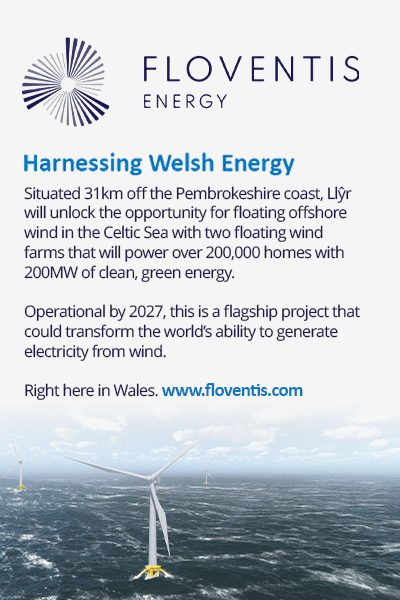Wales is “making its own strides” in achieving net zero in real estate, says The Royal Institution of Chartered Surveyors (RICS).
It has published its global sustainability report for 2024 which outlines the state of the world's green and sustainable real estate, while also highlighting essential policy recommendations, to help drive the UK’s built environment sector towards decarbonisation.
While the UK has made strides in carbon reduction across buildings and infrastructure, RICS stresses in the report that further action is needed to meet national and global climate goals.
On the demand side, 49% of respondents in Wales reported that occupier demand for green or sustainable buildings has risen in the past year, and 56% said that demand has risen from investors.
38% of respondents in Wales report that they currently do not measure embodied carbon, which is lower than the UK average which sits at 43%.
Looking at factors deemed to be holding back the industry, in Wales, 27% of respondents state that a lack of government incentives and policy uncertainty is a barrier preventing the widespread adoption of sustainable practices across the industry, this is compared to the 31% seen at UK level.
In Wales, high initial costs of sustainable or green building practices and materials appears to be a barrier, with 58% reporting this as a challenge for adopting sustainable construction practices.
However, on a more positive note, 31% of respondents stated that they measure biodiversity on all projects, compared to 22% at UK level, and a further 58% noted that they measure biodiversity on some projects.
To accelerate progress, RICS advocates for a comprehensive sustainability approach that includes evidence-based targets, mandatory carbon assessments (such as WLCA) for all new projects, and enhanced training for built environment professionals. The report also recommends that policymakers set clear, national targets to aid decarbonisation, alongside the enforcement of minimum energy performance standards, building codes, and climate resilience benchmarks.
To support Government and the industry's shift toward sustainability, RICS standards, including its Whole Life Carbon Assessment (WLCA) and Retrofit standards, provide valuable frameworks to assist government efforts. These standards align with national goals by offering practical pathways for achieving sustainable outcomes.
Additionally, the recently launched ‘Net Zero Carbon Building Standard’ builds on this, creating clear guidelines to complement government initiatives and bolster the transition to net zero.
These figures could also increase further in the coming years due to the UK’s recent biodiversity net gain legislation. This legislation requires developers to improve the biodiversity of their sites by a minimum of 10%. The regulation became mandatory in February 2024 and is expected to extend to include major infrastructure projects in 2025.
Sam Rees, RICS Senior Public Affairs Officer for Wales, said:
“In Wales we are making our own strides in achieving net zero. The Optimised RetroFit Programme is set to support the Welsh Housing Quality Standard 2023, supporting the decarbonisation of homes across Wales. RICS continues to support this programme through its Whole Life Carbon Assessment and Residential Retrofit Standards, which provide professional advice to those looking to decarbonise homes and embrace sustainable working practices.
“RICS is also calling for the Welsh Government to support businesses to create more sustainable properties by reflecting energy efficiency improvements in business rates relief, which will not only help in decarbonising the industry, but also assisting businesses through wider economic challenges. Sustainability is at the centre of what RICS does, and we are encouraging professionals to embed net-zero carbon targets as industry standard in both decision making and procurement approaches, in order to build a sustainable future for society.”
RICS President, Tina Paillet, commented:
“Last year, I described the RICS Sustainability Report as a wake-up call to our industry, pointing out that our progress on sustainability was lagging behind what is required. Despite that, I expressed confidence that the 2050 net-zero target was still within reach, if we pursued it wholeheartedly. This year’s report, however, suggests that the level of commitment necessary to meet these goals is still lacking, presenting a mixed but underwhelming picture overall.
“Credible policy interventions are essential, and regulation remains a significant factor driving green real estate investment and shaping construction practices. RICS will continue to champion effective regulation and the adoption of common standards across jurisdictions to simplify processes, ensure a level playing field, and ultimately drive meaningful progress on climate goals.”




